What Happened To Boston Movies?

Payton McCarty-Simas is a freelance writer and artist based in…
For a long time, Boston in film was almost synonymous with a certain sensibility. Films set in Boston in the ’90s and 2000s pervaded: The Departed, The Town, Mystic River, Gone Baby Gone, The Boondock Saints… and on and on.
As Seth Meyers‘ 2016 parody trailer, “Boston Accent,” describes it, the “Boston movie” is about “family and loyalty and all that other Boston stuff,” other stuff being Ben Affleck, Matt Damon, and bodies shoved in the trunks of unmarked cars. Lately, though, the South Boston borne out of the era of bank robberies and gang murders is almost nowhere to be seen in the film landscape. What happened?
As Boston has gone from being known as the home of Irish mobsters like Whitey Bulger to the home of Biomedical engineering conferences and the Boston Marathon, movies set in Massachusetts have waned – but not disappeared. Now, movies in this genre are fewer and far between, not as prominent on average, and more likely to be set closer to this writer’s hometown, Taunton, in Southeastern Mass., than Boston itself. These locations maintain the aesthetic that once defined the now hyper-gentrifying Boston and the themes of the films set there are equally familiar: Family, loyalty, and all that other Boston stuff, criminal element or not, Southie or no Southie.
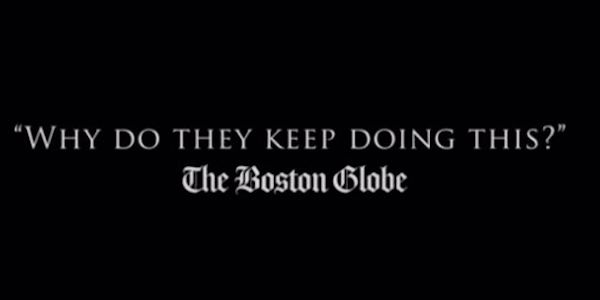
All of these films are defined by a uniform aesthetic sensibility. Succinctly, Boston movies are, to quote the poster for Monument Ave., “gritty.” Populated by working-class townie characters, children of European immigrants – for the most part Irish or Italian Catholics, covered with the tattoos to prove it – most characters have connections to either the mob or Boston PD. Their families are also working-class, often laboring in the factories, warehouses, and dockyards that once made up the economic heart of the city.
Boston movies almost always revolve around questions of honor among thieves: which is more important, the loyalty owed to one’s family or that owed to one’s employer? Is upward mobility feasible in a dangerous, corrupt system? In essence, to quote The Departed: “[in this world] you can become cops or criminals. All I’m saying to you is this: when you’re facing a loaded gun, what’s the difference?”
“This is Boston not LA”
Boston’s history of mob violence spans over a century, but became a central feature of its reputation in the early 1960s. As violent conflicts over desegregation roiled the city, with over 40 major riots taking place over that decade alone, many of which were facilitated in part by different city gangs – the Irish mob even attempted to assassinate Senator Ted Kennedy for his anti-segregation stances–– another gang-related scourge was brewing: the mob wars over drugs, racketeering, and turf between a number of criminal organizations, mainly the Irish and Italian mobs, led to an even larger explosion of violent crime, from murder to armed robbery and aggravated assault. Simultaneously, another soon-to-be-famous killer stalked the streets, murdering thirteen women before his capture in 1964. Albert DeSalvo, better known as the Boston Strangler, captured the imagination and fear of the entire country and spawned an early Boston crime film of the same name in 1968.
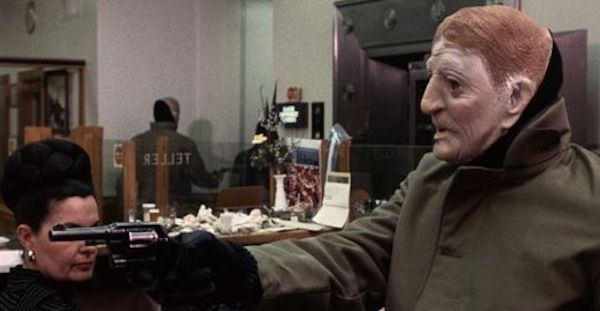
From this milieu came the first recognizable predecessors of the Boston movie as we know it – The Thomas Crown Affair (1968) and The Friends of Eddie Coyle (1973). These two films exemplify the way crime frames this genre. The Thomas Crown Affair, though shaped by the aesthetics of the 1960s and set in a higher-class world than later films, fits the broader mold: a bank robbery set up by a bored genius leads to a game of cat and mouse where detectives’ loyalties to each other and their department are tested; robbers debate between loyalty to each other and the appeal of snitching to save themselves from extended prison sentences. The Friends of Eddie Coyle, for its part, establishes a rhythm that becomes familiar in films like The Town: blue-collar bank robbers in the Irish mob pulling several heists, each more desperate than the last, trying to evade the police.
Southie
In the 1980s, the tropes of the nascent genre were solidified in shows like Spencer: For Hire before exploding into the more familiar batch of films that were commonplace in the 1990s and 2000s. Arguably beginning with Matt Damon and Ben Affleck‘s breakout film Good Will Hunting in 1997 (the “Boston Accent” trailer: “you know Good Will Hunting has a lot of those themes too. It doesn’t have the same amount of violence, but I think it still holds up”), which garnered nine Oscar nominations including Best Picture, the genre soon became ubiquitous, its tropes fully established. In 1999, films like The Boondock Saints and Southie (featuring not one but two Wahlberg brothers, neither of whom is Mark) followed similar storylines to The Friends of Eddie Coyle. Working-class boys with few options in the legitimate world face off with one mob or another, commit crimes, evade the police, and worry their loved ones. Meanwhile, The Thomas Crown Affair remake that same year maintains the plot and genteel aesthetics of the original–– but is set in New York City rather than Boston. LA’s Boston was established, and the world of art museums and high society no longer fit the bill.
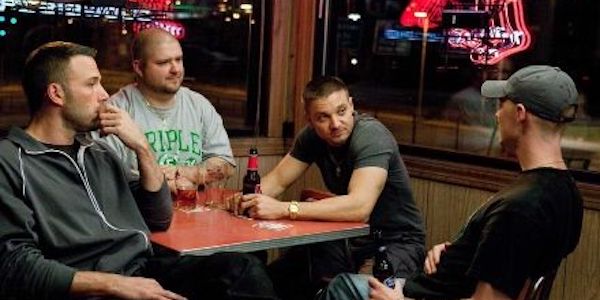
Throughout the mid-2000s and early 2010s, some of the most famous entries into the genre were released: Mystic River, a film following the difficult lives of two blue-collar Irish-American men and their brushes with the law, earned critical success in 2003. In 2006, The Departed, Scorsese’s film loosely based on Whitey Bulger, the consensus peak of the genre, earned five Academy Award nominations and won both Best Picture and Best Director. The next year, Ben Affleck received praise for his direction of Gone Baby Gone, a film where a child’s disappearance in Dorchester leads the Boston PD to uncover a gang’s drug racket. In 2010, The Town (also directed by and starring Affleck), about an Irish-American bank robber in Southie trying – and failing – to go straight, was a great financial success, and The Fighter, a biopic about the boxer “Irish” Mickey Ward starring Mark Wahlberg, received seven Academy Award nominations, including Best Picture.
This is LA, Not Boston
From here, though, the Boston movie begins to wane. Where before, movies in this genre were released with regularity and were typically financially successful, there are few examples between 2011 and 2015. Why?
A Boston Globe review for The Town underscores one of the fundamental challenges facing the genre by the latter half of the 2000s:
“I don’t care what anyone outside the greater metropolitan area says: The Town takes place in Movie Boston [emphasis added] rather than the real thing. Movie Boston is a sub-Scorsese landscape of stubbled men walking down mean Suffolk County streets that exist primarily in the minds of good pulp novelists and bad screenwriters, and its authenticity depends far too much on Hollywood actors trying hahd to bend their dialogue around non-rhotic speech patterns.”
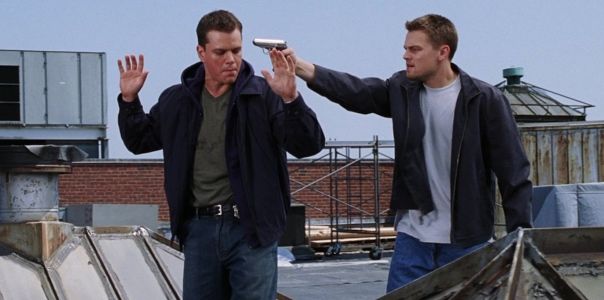
The Boston of Whitey Bulger and his enforcers was nowhere in evidence even by the 2000s, and the high crime rates, which peaked in the 1970s in the 80s, had waned. The city was sick of seeing itself represented as a veritable warzone by actors who hadn’t lived there in decades (from the same Globe review: “Did I mention Ben Affleck is from Cambridge? [the upscale neighborhood where Harvard is located]”).
Gentrification added to this paradigm shift for the city, as well as for Hollywood’s idea of it. According to the Boston Globe, between 2013 and 2017, “huge swaths” of Boston were gentrified, including many pockets of South Boston. Per a study performed by the National Community Reinvestment Coalition, “more than 21 percent of the census tracts in Greater Boston that were at risk of gentrifying did so over that four-year period.” Thus, neighborhoods once known for their housing projects and Irish Catholic communities began to disappear, replaced with more upscale condominiums for young professionals. This precipitated a radical change to the outward face, the aesthetic sensibility, of a city Hollywood had come to define by its clapboard duplexes and Bathtub Mary’s.
In 2015, ’16, and ’17, a fresh batch of Boston movies sprang to life and presented a stark case study in the shifts Hollywood made in representing the city.
In 2015, Spotlight, a drama recounting the story of a team of investigative reporters who uncovered the sexual abuse of minors by Catholic priests in the Boston Archdiocese, won Best Picture. The themes: “family, loyalty, and all that other Boston stuff” are reframed and channeled into the strictures of a more traditional drama, and the antagonists are different figures of authority: the church and its lawyers. A similar set of questions to those examined in films like The Departed apply here: In a corrupt system, can there be justice? Is loyalty owed to the Church over family? Notably, the film is a period piece set in 2001, the height of the Boston film and a moment in time where, regardless of the film’s subject matter, much of the Boston movie sensibility could be put on display. The film’s backstory also takes place in the 1970s, the height of the mob’s power in the city. Much of the film was shot in Canada.
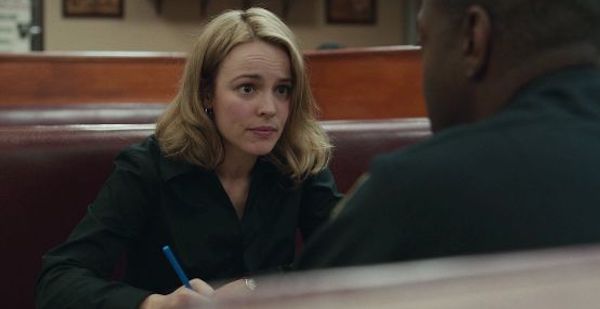
That same year, Black Mass, another period piece about Whitey Bulger was a modest success, though nowhere near that of earlier films like The Departed. The next year, Ben Affleck directed and starred in another Boston period piece, this time following the escapades of Irish bootleggers and gangsters in the 1920s. The film, Live By Night, was a box office bomb. Attempts to reframe the tropes of the Boston movie into a more traditional gangster mold failed.
Similarly, two films following the events of the Boston Marathon bombings in 2013, Patriot’s Day (2016) starring Mark Wahlberg, and Stronger (2017), also fared poorly at the box office. These films’ attempts to reorient the Boston movie mold towards underdog stories and police procedural drama free of the moral complexity so central to the mob films in the genre also failed to strike a chord.
Just this year, another film in the Boston movie mold, The Walk, a period piece about the riots precipitated by the process of desegregating Boston’s schools, combines the inspirational story tact of Stronger with the 70’s period-piece tact of Black Mass. It was shot almost entirely in New Orleans and, thus far, has received poor reviews, failing to garner a wide audience.
Southie, or Southeastern Mass.?
At the same time, though, a new batch of movies has begun to appear. They share some of the same themes and aesthetics as the older crop of movies but now took place in places like Fall River, New Bedford, Taunton, and Gloucester. These locations are still home to working-class immigrant communities, factories (some defunct, some not), warehouses – in short, all the things Hollywood defined as essential to the ethnic, blue-collar sensibility of their imagined Boston.
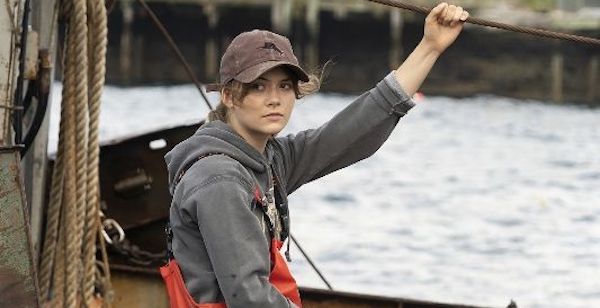
Jungleland (2019) for example, follows two Polish-American brothers whose fates seem doomed to be forever intertwined as they try to make it big in boxing while also paying off their gambling debts to the mob. The film was shot in Taunton, Fall River, and New Bedford, places which have historically been home to more Polish immigrants than Boston. The stylistic choices and class signifiers remain the same – factory work, tattoos, Boston accents, guns – but the choice to relocate them in the story of a Polish-American family is a fascinating demonstration of the subtle changes necessitated by the geographic shift made to maintain the sensibility in question.
Meanwhile, just this year, CODA, a working-class family drama following the one hearing daughter in a deaf family set in Gloucester won Best Picture. Though wildly different in terms of genre, subject matter, and even tone, like Spotlight, themes of loyalty and family abound, and the family business – fishing – provides a similar class aesthetic. Manchester by the Sea, another acclaimed working-class family drama shot in part in Gloucester, also earned six Academy Award nominations in 2016 including Best Picture and won two.
Ben Affleck, the preeminent director of the Boston movie, is shooting in this area as well: his 2021 working-class coming-of-age drama The Tender Bar was shot in smaller towns and cities similar to the locations used for CODA – Worcester, Braintree, and Lowell – and is set in New York state. Evidently, he is distancing himself from the genre after its failures over the last decade.
Conclusion
While the Boston movie itself seems to have gone the way of the Western, the appeal of its core themes, and its sensibility seems to remain: family, loyalty, and all that other Boston stuff.
What are your favorite Boston films? Let us know in the comments below!
Does content like this matter to you?
Become a Member and support film journalism. Unlock access to all of Film Inquiry`s great articles. Join a community of like-minded readers who are passionate about cinema - get access to our private members Network, give back to independent filmmakers, and more.
Payton McCarty-Simas is a freelance writer and artist based in New York City. They grew up in Massachusetts devouring Stephen King novels, Edgar Allan Poe stories, and Scooby Doo on VHS. Payton holds a masters degree in film and media studies from Columbia University and her work focuses on horror film, psychedelia, and the occult in particular. Their first book, One Step Short of Crazy: National Treasure and the Landscape of American Conspiracy Culture, is due for release in November.












